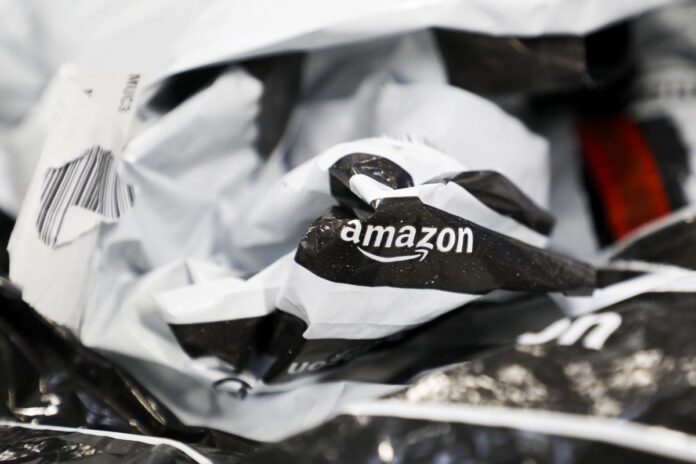Up to 22.44 million pounds of Amazon’s plastic packaging waste entered and polluted the world’s freshwater and marine ecosystems in 2019, the equivalent of dumping a delivery van payload of plastic into the oceans every 70 minutes.
This is according to a report out today by the charity Oceana which found that Amazon generated 465 million pounds of plastic packaging waste last year.
This is comprised of the air pillows, bubble wrap, and other plastic packaging items added to the approximately 7 billion Amazon packages, delivered in 2019, according to news accounts.
The report found that Amazon’s estimated plastic packaging waste, in the form of air pillows alone, would circle the Earth more than 500 times.
“The amount of plastic waste generated by the company is staggering and growing at a frightening rate,” noted Oceana’s Senior Vice President, Matt Littlejohn. “Our study found that the plastic packaging and waste generated by Amazon’s packages is mostly destined, not for recycling, but for the landfill, the incinerator, or the environment including, unfortunately, our waterways and sea, where plastic can harm marine life. It’s time for Amazon to listen to its customers, who, according to recent surveys want plastic-free alternatives, and make real commitments to reduce its plastic footprint.”
Plastic is a major source of pollution and is devastating the world’s oceans. Recent studies estimated that 90% of all seabirds and more than half of all sea turtles – 52% – have ingested plastic. Sea turtles and other ocean animals mistake the kind of plastic used by Amazon as food, which can ultimately prove fatal.
Eighty-eight percent of animals found to have swallowed or have been entangled in plastic, according to a recent Oceana study, were species listed as endangered or threatened with extinction under the Endangered Species Act. Scientific reports have estimated that only 9% of all plastic ever produced has been recycled and 91% has ended up in landfills, incinerated, or in the environment, including the oceans. The rapidly growing plastic pollution crisis needs to be solved by major plastic polluters like Amazon taking steps to reduce plastics, rather than making empty claims about recycling.
The report discloses that the type of plastic often used in packaging by Amazon, referred to as plastic film, is effectively not recycled, despite the company’s claims of recyclability. Most municipal curbside recycling programs in the United States, Canada, and the United Kingdom do not accept this kind of plastic. According to studies, only 4% of residential polyethylene plastic film in the United States was recycled as of 2014
According to the study,Amazon customers overwhelmingly want the company to reduce plastic packaging.
Oceana surveyed more than 5,000 Amazon customers in the U.S., Canada, and the UK in 2020 and found that 86% were concerned about plastic pollution and its impact on the oceans; 92% were upset that plastic recycling does not work; and 87% wanted Amazon and other major online retailers to offer plastic-free packaging choices at checkout.
More than 660,000 customers and others have signed a petition calling on the company to offer plastic-free choices at Change.org/Plastic Free Choice.
Unlike other companies seeking to move away from plastic, Amazon appears to be prioritizing the increased use of “flexible packaging” made of plastic. It has stated it uses flexible packaging to help protect the climate and environment, but has not publicly disclosed the data underlying this claim or its plastic footprint.







